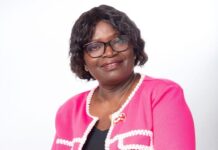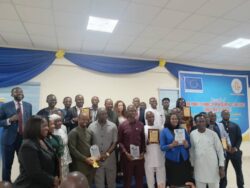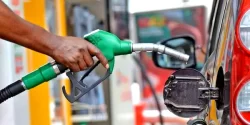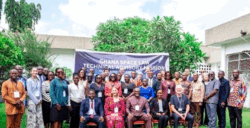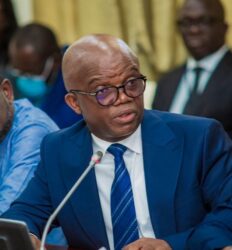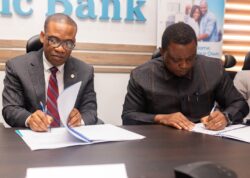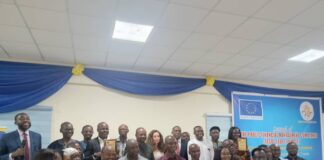Despite Ghana’s economic headwinds, EcoCapital Investment Management is adopting a cautiously optimistic stance for 2024. An analysis of recent reports from the fund manager reveals a nuanced outlook, balancing challenges with potential opportunities.
EcoCapital’s Prime Fund demonstrated resilience in the face of economic turbulence, reporting a moderate annual return of 19.02% and closing the year at GHC 1.1221 per share. This performance, while modest, reflects the fund’s ability to generate returns in a challenging environment.
Delali H. Agbo, CEO of EcoCapital Investment Management, emphasized the significance of Ghana’s engagement with the International Monetary Fund (IMF). “The government completed its first economic review under the IMF US$3 billion Enhanced Credit Facility,” Mr. Agbo stated, adding that this could “unlock a second tranche worth US$600 million subject to a formal debt negotiation agreement from bilateral creditors.”
The Domestic Debt Exchange Programme (DDEP) has emerged as a critical factor influencing investment strategies. Mr. Agbo explained, “The DDEP has brought to the limelight the imminent sovereign default and the realities of its impact on fixed-income portfolios. The fund’s portfolio mix shall be rebalanced with a focus on short-term securities with minimum volatility, this is expected to boost the fund’s liquidity without downplaying the risk and returns.”
Looking ahead to 2024, EcoCapital’s cautious optimism is grounded in both global and economic projections. While the IMF forecasts global economic growth to remain at 3.2%, with Sub-Saharan Africa potentially reaching 3.8%, Ghana’s specific outlook is more tempered, with a growth projection of 2.8%.
Mr. Agbo outlined the challenges facing Ghana’s economy: “Tight fiscal constraints, high inflation, and elevated interest rates are likely to dampen consumer spending and investment, particularly outside the mining and oil sectors.” However, he also noted potential positive factors, including “a potential policy tilt from the US Federal Reserve, along with inflows from the World Bank and the IMF’s ECF, are expected to aid the cedi to stabilize.”
EcoCapital’s investment strategy for 2024 reflects this cautious optimism. The fund manager plans to diversify away from Government of Ghana securities, focusing instead on equity and money market securities to improve performance. Risk management remains a cornerstone of their approach, with Mr. Agbo stating, “Risk management strategies will continue to remain key in our policy formulation.”
The fund manager’s outlook aligns with broader market trends. The Ghana Stock Exchange (GSE) presented a mixed picture in 2023, with the GSE Composite Index rising by approximately 28%, driven by sectors like FMCG, Agribusiness, and Telecommunications. However, trading activity decreased by around 50% compared to the previous year.
As Ghana’s investment landscape evolves, EcoCapital is adapting to new realities while maintaining a positive outlook. Mr. Agbo affirmed, “EcoCapital Prime Fund will continue to explore great avenues that will consistently add value to shareholders’ funds.”
In alignment with EcoCapital’s strategy, the Nordea Income Growth Fund will also be rebalancing its portfolio with a focus on short-term securities with minimum volatility. This move aims to enhance the fund’s liquidity while managing risk and returns. The equity allocation of the fund will be actively managed, ensuring that risk management strategies remain a key component of their policy formulation.
The Weston Oil & Gas Fund’s investment strategy for 2024 will focus on diversifying away from Government of Ghana securities by investing in equity and money market securities to improve performance. This approach aligns with the fund’s objective of supporting local participation in the oil and gas industry by building the capacity of local companies operating in the sector. The fund’s focus on majority-owned Ghanaian companies that provide services to the oil and gas industry is a strategic move to drive local participation and retain value within the Ghanaian economy.
With an ongoing commitment to navigating challenges and seizing opportunities, EcoCapital Investment Management remains confident in its ability to deliver sustainable growth and value to investors. Mr. Agbo concluded, “With your continued trust and support, we are confident in our ability to deliver sustainable growth and value to our investors while contributing to the development of Ghana’s economy.”
The coming year will likely see a continued emphasis on risk management and diversification as EcoCapital navigates Ghana’s economic challenges. While cautious, the fund manager’s optimism suggests potential opportunities for growth and value creation in 2024, despite the prevailing economic uncertainties.




